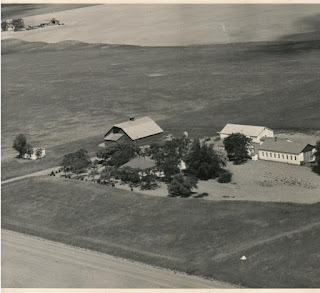The High Cost of Wasted Human Potential
Jerry* was a quick learner at the mill. The foreman noticed and picked him for operator training. This led to advancements and a terrific salary. About twenty years into his mill career, overseas competition undermined profits. Layoffs became routine. Money got tight. Unable to find work, Jerry became despondent.
Sitting at a bar mid-day, Jerry struck up a conversation with a man sitting nearby. Suffice it to say, he made a deal with the devil. All Jerry had to do was make a “special delivery” and he’d be able to pay his mortgage that month. Sometimes people can pinpoint the beginning of their downfall. Jerry would look back and remember his.
More deliveries followed, and soon Jerry enjoyed “all” the business perks and got just as hooked as those who desperately needed his “deliveries”. He kept his new business from his wife. A ‘don’t ask don’t tell’ policy is never good in marriage.
Eventually his wife’s suspicions were confirmed when she found a hefty stash of drugs. When he wouldn’t quit, she kicked him out. On his own in a dingy apartment, Jerry’s addiction got worse. He got sloppy with his deals, got busted, and sent to prison. Good riddance.
Jerry worked in the sweltering prison laundry for pennies an hour. As he baked in the heat, it would’ve been easy to blame the mill for ruining his life. But the mill didn’t force him to sell drugs. Deep down he knew he’d ruined far more lives than his own.
Upon his release, Jerry found that being a convicted felon was a real a job-killer. Eventually an old pastor named Wally* hired him to clean his church when no one was around. Wally became a mentor of sorts. He co-signed on a tiny studio apartment so Jerry could have a place to call home.
Wally and Jerry became friends and with Wally’s encouragement Jerry took online classes for five years and eventually became a substance abuse counselor.
Jerry also volunteers in prison ministry. He’ll never forget the fear of living with hardened men. Many were conniving, but extremely bright and capable. If only that intelligence could be channelled into opportunities on the outside. Jerry knew what was possible with help.
Every year 650,000 men leave prison and within three years, two-thirds are back behind bars—mainly because of unemployment. More than anyone, Jerry knows he'd gone back to prison without Wally. But now he helps others with the consequences of addiction. And he's making a difference. But there will never be enough people like Wally to help the ex-felons. So for now, prisons will be where we pay high costs to waste human potential.






